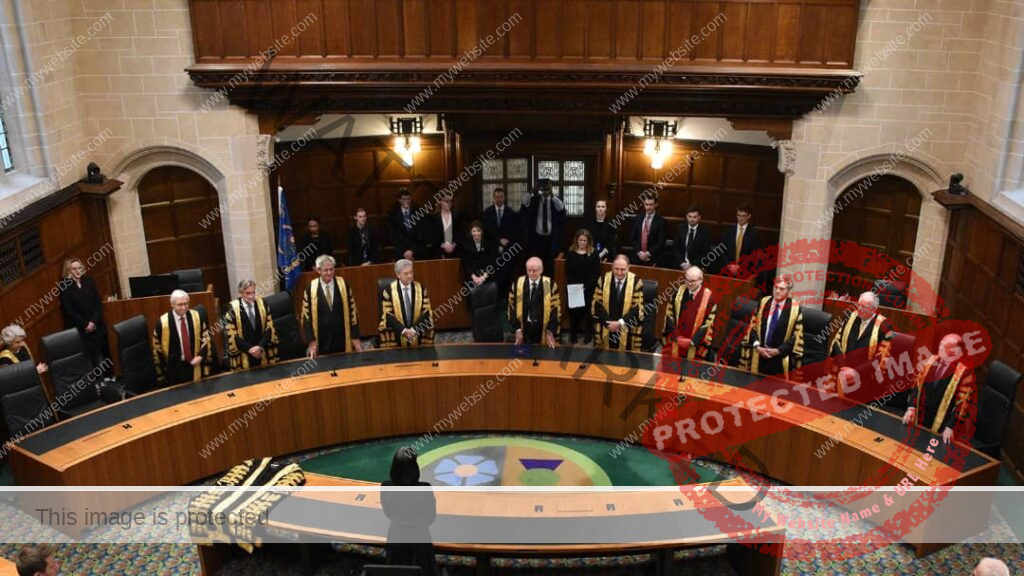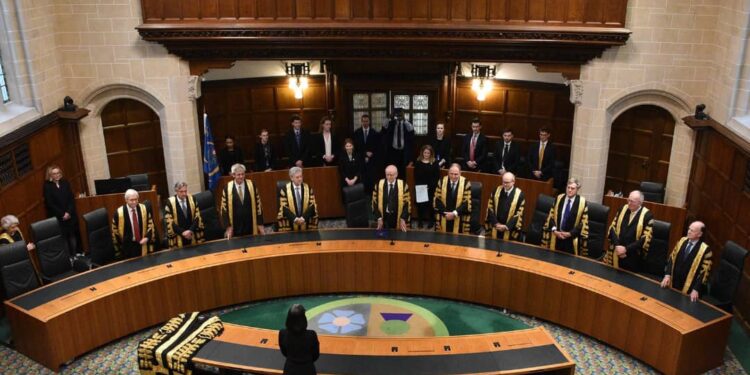


The UK Supreme Court has made a landmark ruling, declaring that transgender women, including those with Gender Recognition Certificates, do not fall under the legal definition of “woman” as outlined in the Equality Act 2010. This decision could potentially reverse years of progress made by the trans rights movement and has sparked calls for a revision of the Equality Act.

The case was brought forth by For Women Scotland (FWS), a gender-critical campaign group backed by author J.K. Rowling and the advocacy group Sex Matters. FWS argued that the term “woman” in the Equality Act should be understood based on biological sex, rather than self-identification or legal paperwork.

The Scottish government defended its stance, arguing that individuals issued with a Gender Recognition Certificate (GRC) have legally changed their sex “for all purposes,” which should include legal protections reserved for women. However, the Supreme Court’s ruling centered on the potential “practical problems” that could arise from treating trans women as women.
The court ruled that the terms “sex,” “man,” and “woman” in the Equality Act 2010 refer to biological sex. This decision was based on the concern that any other interpretation would render the Equality Act 2010 incoherent and impracticable to operate.

The judges noted that protections for pregnant women would collapse unless “man” and “woman” had a biological meaning. They also found that considering trans women with GRCs as having a female “certificated sex” would create further issues.


Lord Hodge said that “interpreting sex as certificated sex would cut across the definitions of ‘man’ and ‘woman’ in the [Equality Act 2010] – and thus the protected characteristic of sex – in an incoherent way.”
The Supreme Court also found that the notion of “certificated sex” would weaken protections given to those with the protected characteristic of sexual orientation. This could interfere with the ability to have lesbian-only spaces and associations.
Additionally, blurring the boundary of sex would create confusion and impracticability around single-sex characteristic associations and charities, women’s participation in sports, and the operation of the public sector equality duty.
The UK Government has welcomed the Supreme Court’s ruling, stating that it brings clarity and confidence to women and service providers. A government spokesman emphasized that single-sex spaces are protected in law and will always be protected by the government.
“We have always supported the protection of single sex spaces based on biological sex,” the spokesman said. “This ruling brings clarity and confidence, for women and service providers such as hospitals, refuges, and sports clubs.”
The ruling has sparked a heated debate, with both supporters and critics weighing in. While some argue that the decision is necessary to protect women’s rights, others claim that it undermines the rights of transgender individuals.
The implications of this ruling are far-reaching, and it remains to be seen how it will affect the lives of transgender individuals in the UK. One thing is certain, however: this decision will continue to fuel the ongoing debate about gender identity and rights.
The UK government’s response to the ruling suggests that it will continue to prioritize the protection of single-sex spaces. However, critics argue that this approach undermines the rights of transgender individuals and creates a hierarchy of rights.
As the debate continues, it’s essential to consider the potential consequences of this ruling on the lives of transgender individuals. Will this decision lead to greater marginalization and exclusion, or will it prompt a more nuanced discussion about gender identity and rights?
The Supreme Court’s ruling has brought the issue of transgender rights to the forefront of public discourse. As the UK grapples with the implications of this decision, one thing is clear: the conversation about gender identity and rights is far from over.
In conclusion, the UK Supreme Court’s ruling has significant implications for the rights of transgender individuals. While the decision has been welcomed by some, it has also sparked widespread criticism and calls for a revision of the Equality Act.
The future of transgender rights in the UK remains uncertain, and it will be crucial to monitor the impact of this ruling on the lives of transgender individuals. As the debate continues, it’s essential to prioritize the rights and dignity of all individuals, regardless of their gender identity.














